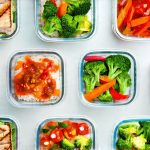Living with bladder sensitivities – whether due to Interstitial Cystic Syndrome (IC), Overactive Bladder (OAB), or other conditions – often means navigating dietary restrictions and potential flare-ups. Many find that certain foods can significantly impact their bladder comfort, leading to anxiety around meal preparation and a feeling of restriction. But it doesn’t have to be about deprivation! It’s possible to enjoy flavorful, satisfying meals while minimizing potential triggers. This isn’t necessarily about complicated recipes or extensive ingredient lists; rather, it’s about adopting mindful cooking practices that prioritize simplicity, gentle ingredients, and reduced stress – both in the kitchen and for your bladder.
The goal is to shift from a place of fear around food to one of empowered choice. Many people with bladder sensitivities report stress as a significant flare-up factor, so the act of cooking itself can become a source of anxiety if it’s perceived as difficult or risky. Low-stress cooking isn’t simply about what you don’t eat; it’s about embracing methods that are manageable and enjoyable, allowing for flexibility and adaptation based on individual tolerance levels. It is about reclaiming the pleasure of nourishment without sacrificing well-being.
Simplifying Meal Preparation
The foundation of low-stress cooking lies in simplification. Elaborate recipes with dozens of ingredients can be overwhelming and increase the likelihood of accidentally including a bladder irritant. Focusing on whole, unprocessed foods as much as possible minimizes hidden triggers and gives you greater control over what you’re consuming. This means leaning into naturally flavorful options and avoiding pre-made sauces or seasonings that often contain high levels of acidity, spices, or preservatives. Consider batch cooking when you have energy – preparing larger quantities of staple ingredients like rice, quinoa, or roasted vegetables can save time and effort during the week.
Think about “building block” meals where components are easily swapped out based on tolerance. A simple protein (baked chicken or fish), a side of gentle carbohydrates (sweet potato or white rice), and steamed or roasted vegetables offer versatility without requiring extensive preparation. Utilizing slow cookers or Instant Pots can also dramatically reduce cooking time and effort, allowing you to set it and forget it while the meal prepares itself. They are excellent for tenderizing meats and creating flavorful dishes with minimal intervention.
Furthermore, don’t underestimate the power of pre-cut vegetables or frozen options. These conveniences can be lifesavers on busy days when energy is low. Just be sure to check ingredient lists carefully – even seemingly simple frozen mixes may contain added ingredients that could cause issues. Prioritizing a few core recipes you know and enjoy, then adapting them based on your tolerance, is far more sustainable than constantly trying new, complex dishes.
Gentle Flavor Enhancement
Many bladder-friendly diets emphasize minimizing spices and acidity, which can understandably feel limiting. However, flavor doesn’t have to be sacrificed! The key is to explore gentle alternatives that enhance taste without irritating the bladder. Herbs are your best friend here – fresh or dried options like parsley, basil, oregano, thyme, and dill add aromatic complexity without the harshness of many spices. Experiment with different combinations to find what you enjoy most.
Consider using lemon zest instead of lemon juice for a subtle citrusy flavor; the zest contains fewer irritating compounds than the juice itself. Similarly, ginger can offer warmth and depth of flavor in small amounts, but should be used cautiously as some individuals are sensitive to it. Turmeric, known for its anti-inflammatory properties, can also be incorporated sparingly. Beyond herbs, exploring different cooking methods can significantly impact flavor. Roasting vegetables brings out their natural sweetness, while steaming preserves nutrients and delicate flavors.
Remember that taste buds adapt over time. As you reduce your intake of highly stimulating foods, you may find yourself appreciating more subtle flavors and nuances in food. It’s also important to listen to your body – what works for one person with bladder sensitivities might not work for another. Maintaining a food diary can help identify personal triggers and tolerances.
Mindful Ingredient Selection
When grocery shopping, read labels meticulously. Even seemingly innocuous products can contain hidden irritants like citric acid, artificial sweeteners, or high levels of sodium. Focus on purchasing whole, unprocessed foods whenever possible. Organic options are often preferable, as they minimize exposure to pesticides and herbicides, but aren’t always necessary if budget is a concern. Prioritize fresh produce in season for optimal flavor and nutritional value.
Pay attention to the source of your ingredients. Locally sourced fruits and vegetables tend to be fresher and have traveled less distance, potentially reducing handling and preservatives. When purchasing packaged foods, opt for brands with short ingredient lists and recognizable components. Avoid products containing artificial colors, flavors, or preservatives, as these can often contribute to bladder irritation.
Don’t hesitate to ask questions at the grocery store or farmers market about ingredients and sourcing. Knowledge is power when it comes to making informed food choices that support your bladder health. Building relationships with local producers can also provide greater transparency and confidence in the quality of your food.
Reducing Kitchen Stress
Perhaps the most important aspect of low-stress cooking is minimizing stress in the kitchen itself. This means creating a comfortable and organized cooking environment, setting realistic expectations, and allowing for flexibility. Don’t feel pressured to recreate elaborate meals you used to enjoy – focus on simple, nourishing dishes that are easy to prepare.
- Prepare your workspace beforehand: Gather all necessary ingredients and equipment before you begin cooking.
- Delegate tasks if possible: Enlist the help of family members or friends for chopping vegetables or washing dishes.
- Embrace imperfections: It’s okay if a meal doesn’t turn out exactly as planned – focus on nourishing your body rather than achieving culinary perfection.
- Listen to music or podcasts while cooking: This can create a more relaxed and enjoyable atmosphere.
Remember that cooking should be an act of self-care, not a source of anxiety. By simplifying your approach, focusing on gentle flavors, and prioritizing mindful ingredient selection, you can reclaim the pleasure of nourishing yourself without compromising your bladder comfort.





















